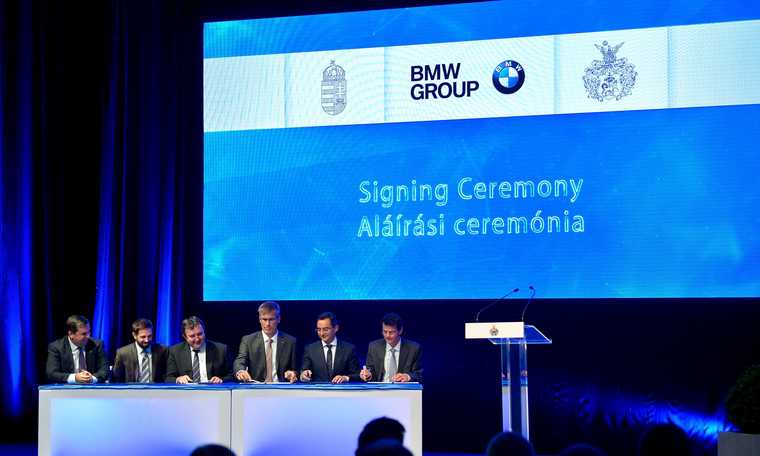The representatives of the BMW Group and the mayor of the city of Debrecen signed the purchase agreement of an industrial area on Tuesday, which will open the way to the construction of the BMW car factory, Hungary’s Innovation and Technology Minister Laszlo Palkovics said. Despite the unfavourable macroeconomic situation, the German automobile manufacturer invests 1 billion euros in the greenfield construction project, V4 news agency reported.
Laszlo Palkovics said that the Hungarian government contributed 388 million euros to the development of the transport infrastructure related to the industrial park where the plant is to be constructed at the city of Debrecen, north-east Hungary. The city will invest a further 104.5 million euros in its educational system to provide skilled labour to the companies based in Debrecen, including BMW’s suppliers.
Mayor Laszlo Papp, the leader of Debrecen, the second largest city in Hungary, called the BMW Group’s plan “the largest development project in the history of the city”, which opens up new horizons in several areas in the region; not only the economy, but also job creation, education and transport infrastructure.
Although the automotive industry, one of German economy’s key sectors, went through a 0.2 percent decrease in the second quarter of 2019, the board of directors decided to move on with the project in line with their earlier decision. It shows the company’s great commitment to the Hungarian automotive sector and skilled labour force. The factory, set to be completed by May 2020, will be the 32nd car factory of BMW and the first new facility in Europe since 2000.
The Visegrad Four countries accounted for 18 percent of the car production of the EU in 2017, with a total of 3.53 million cars manufactured. Every euro invested in the automotive industry added a further 1.1 euros to the V4 bloc’s national product, the research of the Polish Economic Institute (PEI) reveals. The employment multiplier index for the automotive industry is 2.29 for the V4 bloc, which means that for each job created in the automotive industry, another 1.3 positions opened across the economy. The same index is 2.59 in the Czech Republic, 2.32 in Poland, 2.27 in Hungary and 1.65 in Slovakia.





Comments are closed for this post.